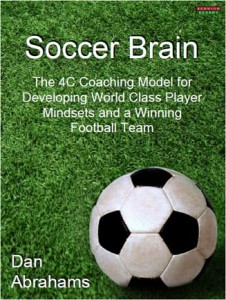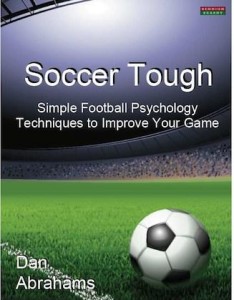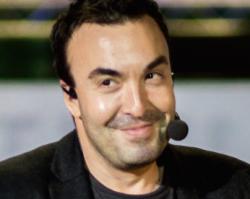Competitive Effort At All Levels of Soccer
SoccerToday’s columnist Dan Abrahams shares his insights and advice for success on the soccer field for players of all ages. A global sport psychologist and author specializing in soccer, Abrahams is based in England and works with professional soccer players in the English Premier League (EPL). Abrahams has helped hundreds of soccer players – many of them who play in the English Premier League (EPL) and others who play across Europe. A recent example of his work includes helping Yannick Bolasie make an enormous impact on the EPL for Crystal Palace. Abrahams has held contracts with QPR, Fulham, and West Ham among other clubs and works quietly, behind the scenes with many coaches from top clubs across Europe.
If you are a player take heed. If you’re experiencing tough times then maybe you just gotta stop running. You gotta learn to switch off and relax. If you’re a natural competitor the assertiveness and aggression will be there anyway – they’re not going anywhere. But you can’t afford to play tight and tense. You can’t afford to play anxiety and fearful.
|
I’ve recently been working with a well-known footballer who was getting the wrong end of the competitive stick. He’s a good player – plays in the EPL for a prominent team, and historically has been standout in many of the games he plays. However, the work we’ve done together has demonstrated the complexity of competitiveness within elite sport, and there are lessons to be learnt for everyone.
I was contacted by this player because he had found a run of bad form. His job is to score for his team and he had remained goalless for some time. He was uptight, stressed and anxious about the situation. Some were questioning his place in the team and he felt pressurised by the manager and coaching staff.
There was a two way process at large here. Failure to score leading to feelings of anxiety and tension. Feelings of anxiety and tension leading to a failure to score. This was a performance loop that had his head in a spin!
His solution at first had been to go out and try harder. Run around more. Be aggressive. Be non-stop. Be relentless. Be strong. This classic Victorian response to failure is only natural – if you fail then try harder. Why not?
But assertiveness and aggression in sport are complex constructs. Paradoxically the harder we try the worse it can get. More effort can lead to a brand of tunnel vision, muscle tight soccer that prevents a player from competing effectively.
It may sound strange but for many players to assert themselves they have to relax. They have to loosen up and quieten their minds. They have to breathe and enjoy. As ridiculous as it may sound strikers in a goal slump have to put a smile on their face and keep it there while they see shot after shot go wide.
I felt this player required a dose of this type of performance philosophy. I wanted him to take his mind away from scoring goals. I wanted him to change his in-game headless chicken mindset and trust his ability, his positional sense, his basic movements, his vision and his awareness. I wanted him to play confident not combative. I wanted him to play focused and not fearful. I wanted him to play free and not forced.
After some initial reluctance and resistance he decided to embrace this new philosophy. When he trained his aim was to ‘let it happen.’ When he went home for the day he stopped the over-analysis and left soccer at the training ground. And when he went into a big Premiership game he trusted and let go with the aim of constructing as relaxed a mindset as the game allows.
He went onto score three goals in the next few games and has won his self-belief back. He has kept his position in the team and he has done this by reducing his effort. He has done this through trust and patience and relaxation.
If you are a player take heed. If you’re experiencing tough times then maybe you just gotta stop running. You gotta learn to switch off and relax. If you’re a natural competitor the assertiveness and aggression will be there anyway – they’re not going anywhere. But you can’t afford to play tight and tense. You can’t afford to play anxiety and fearful.
Stop trying to force a great performance – a goal or a clean sheet. Stop trying to win man of the match. Let those take care of themselves. Relax. Have fun. Trust your ability.


Dan Abrahams is a global sport psychologist specializing in soccer. He is based in England and has some of the leading turn-around stories and case studies in English Premier League history.
Abrahams is sought after by players, coaches and managers across Europe and his 2 soccer psychology books are international bestsellers. He is formerly a professional golfer, is Lead Psychologist for England Golf and he holds a degree in psychology and masters degree in sport psychology. Abrahams books be purchased from Amazon.com or from his website.






